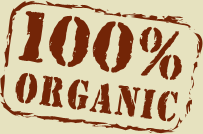I woke up super early this morning (about 5:20am) even though it's Saturday. I think my internal clock has been permanently set to the time I get up for work on weekdays now. Oh well, just makes more time to get things done...and then take a nap later on lovely weekend days such as today :)
 |
| The stalk of brussel sprouts that I purchased this morning looked similar to this before I picked off all the individual sprouts. |
 |
| What the whole plant looks like before it is harvested. |
Since I was up so early, I decided to head over to the neighborhood farmer's market as soon as they opened, so I could get the best pick of the cheapest produce this time. I was planning to only buy organic, but some of the the non-organic but still local people had some interesting items that the others didn't have, such as broccoli and today's vegetable of the day... brussel sprouts!
I've never bought fresh brussel sprouts before. I've bought them frozen once or twice, but DH doesn't like them so we don't make them often. As a kid, I hated them! I think most people have bad childhood memories of a mushy, maybe buttery, awful tasting green pile of brussel sprouts on their plate that they were forced to finish before they were allowed to leave the table. They used to make me gag! I'm sure it didn't help that the stubborn streak in me made me wait at the table for I'm sure about an hour until they were cold and even more disgusting before I would finally give in and plug my nose while swallowing them as quickly as possible to get it over with so I could get down from the table.
 |
| The sprouts I picked on my porch this morning. |
As they so often do for many people, my taste buds changed once I became an adult and I was open to trying this scary vegetable again. To my surprise, they weren't so bad! I did drench them in butter again... but I could still detect some of their natural flavor coming through and too my surprise I kind of liked it!
When I saw them fresh on the stalk this morning at the farmer's market, I'll admit that I had to ask what they even were. When they told me "brussel sprouts," I got kind of excited and knew I had to try to find some new recipe and make them from this fresh stalk!
The farmer told me to take it home, pick off each individual sprout, and peel off the outer layer of leaves. I found a video on you tube about how to prepare them and it suggested cutting off most of the base, and even cutting a little slit up the middle to let the tough stalk cook and get tender.
I plan to split my sprouts between two meals. Tonight, I'm going to just do a simple oven roast with the following recipe that I found on the food network:
 Oven Roasted Brussel Sprouts
Oven Roasted Brussel Sprouts
1 1/2 lbs Brussels sprouts
3 tbsp olive oil
3/4 tsp kosher salt
1/2 tsp freshly ground black pepper
Preheat oven to 400 degrees F. Mix sprouts in a bowl with the olive oil, salt and pepper. Pour them on a sheet pan and roast for 35 to 40 minutes, until crisp on the outside and tender on the inside. Shake the pan occasionally to brown sprouts evenly. Sprinkle with more kosher salt (I might skip this), and serve immediately.
Later in the week, I plan to use the remaining brussel sprouts and pan-fry them with some pancetta that I also bought at the farmer's market from a local producer this morning. The vendor makes all his own pancetta and smoked meats right here in Milwaukee, and he gets all his meat from hormone-free, pasture fed animals in Iowa. This will be my first venture back onto the meat side of things in exactly two weeks. I feel a little nervous about it as I'm still unsure where my ultimate ethics stand, but at least I do feel a little better knowing where my meat came from.
I'll use half the pancetta for this recipe (see below), and the rest I will serve raw with some cantaloupe that I bought at the farmer's market too. The farmer told me he picked it yesterday and it should be at it's ultimate ripeness by tomorrow!
 Brussel Sprouts with Pancetta
Brussel Sprouts with Pancetta
Ingredients
- 1 pound fresh Brussels sprouts, trimmed
- 2 tablespoons olive oil
- 3 ounces paper-thin slices pancetta, coarsely chopped
- 2 garlic cloves, minced
- Salt and freshly ground black pepper
- 3/4 cup low-salt chicken broth (I'm going to try substituting vegetable broth here)
Directions
Partially cook the Brussels sprouts in a large pot of boiling salted water, about 4 minutes. Drain.
Meanwhile, heat the oil in a heavy large skillet over medium heat. Add the pancetta and saute until beginning to crisp, about 3 minutes. Add the garlic and saute until pale golden, about 2 minutes. Add the Brussels sprouts to the same skillet and saute until heated through and beginning to brown, about 5 minutes. Season with salt and pepper, to taste. Add the broth and simmer until the broth reduces just enough to coat the Brussels sprouts, about 3 minutes. Serve.
















